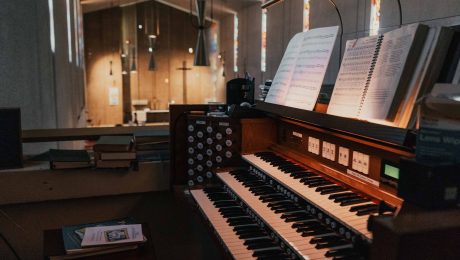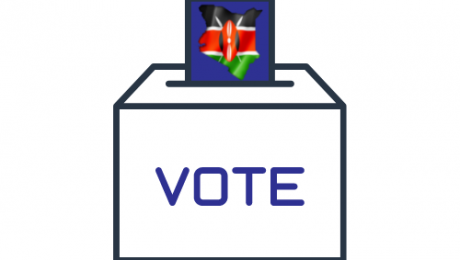When the call to join the STEM program came, I had some doubts that needed to be dealt with. However, I had faith that the Lord would sustain me wherever He calls me. I am grateful for the opportunity to be part of this life-changing program.
I have developed deep convictions about trusting God. His will is perfect and His supply is reliable. STEM has strengthened my desire to continually grow into a better disciple of Christ. My relationship with God and other believers has also greatly been strengthened.
In the beginning, I struggled with making new relationships, preparing sermons, preaching them, and reading. But as I transition from STEM, I have confidence and self-belief, I can approach anyone without fear. I now enjoy networking. Consequently, my resource mobilization skills have grown. Moreover, am a reading leader, writing a few articles and hoping to publish books in the near future. Lastly, I can address large audiences without fear and firmly express my thoughts. Generally, leadership, conceptual, decision-making, and interpersonal skills formed in me during this term of service are invaluable.
The students in the region were supportive, warm, encouraging, and always reached out to check on me and also seek help. This was heart-warming because it provided such a wonderful environment for ministry. Secondly, the FOCUS staff and western region teammates in particular proved to be such a supportive team. In a special way, I am indebted to my partners who gave their time, and resources and made efforts to support and pray for me. The Kibabii University and Diploma faculty members especially the very social patrons were very helpful to me. I appreciate the individuals who have challenged me to grow and become a better person.
As I transit, I hope that God would continually stir up in me and other individuals a desire to support students’ ministry through FOCUS Kenya. I rejoice in what God has always been doing. May God bless the students’ ministry in Kenya!
I am Walter Wanjala. It has been amazing to stay in Narok as a STEM Staff for Maasai Mara University and Bomet University College Christian Unions. I joined the STEM program to serve without knowing what God was about to do with my life. It turned out to be an experience of wholesome transformation within and around. I have come to appreciate that God has in mind every bit of our steps in life. He always knows what He wants to do with our lives in every season. There has also been a deeper sense of intrinsic transformation and self-awareness stepped
The greatest fulfillment, with thanksgiving, has been to see the lives of students being transformed by the gospel.
STEM has enabled me to gain many skills that are critical for my life, career and ministry. I have been able to acquire skills such as Counselling, small-group management, public speaking and communication skills in leadership training and preaching, conflict resolution skills, Courtesy in hosting people, budgeting and financial management skills, enhanced skills in working with Excel Sheets, Microsoft Word, Publisher and PowerPoint, Stress management, policy papers and Constitution making processes, Team leadership and management of official meetings.
All these could not have been possible without the mighty hand of God. As evidenced in His abundant grace, He has carried me through the different experiences that came my way. I was often discouraged when things did not fall in place as I could have expected. But God’s mercy kept me refreshed and renewed my energy.
First, I wish to extend my heartfelt gratitude to my team leaders who offered the necessary directional support when I needed it. Also, I am thankful for every partner that God brought on my way to support God’s work in many ways. It was humbling to have had them walk with me in my ministry. Finally, I am thankful to the Maasai Mara University and Bomet University College CU students for offering a fertile ground for God to plant the seeds.
As I consider my transition to the corporate world, I hope to still be involved in student ministry. I pray that God will provide for His work through me. May the Lord help me to use my time and energy keep serving in FOCUS as an associate. Glory be to Our Lord Jesus Christ.
“Amazing grace, how sweet the sound, that saved a wretch like me…!” so goes the classic Christian hymn composed by John Newton in 1772. This timeless song resonates with the present ‘wretched’ state of every human being at the sight of God. What inspired John Newton to pen down this song, that has remained alive and sung in so many languages decades later?
The amazing story
John Newton was born in 1725 in London to a Puritan mother who died two weeks before his seventh birthday, and a stern sea-captain father who took him to sea at age 11. After many voyages and a reckless youth of drinking, Newton was forced to join the British navy. After attempting to desert, he received eight dozen lashes and was reduced to the rank of a common seaman.
While later serving on the Pegasus, an enslaved person ship, Newton did not get along with the crew who left him in West Africa with Amos Clowe, an enslaver. After a while, a sea captain, at the instruction of John’s father, went out to look for him. His mission was a success and John was rescued from the African coast. However, during their voyage back to England, they were caught amidst a great storm.
The story is told that the storm swept some of his men overboard and left others on the verge of drowning. With both hands fastened onto the wheel of the boat, Newton cried out to God saying, “Lord, have mercy on us.” After eleven hours of steering, the remaining crew found safety when the storm calmed. It is aboard this ship that Newton surpassed his earlier immorality and impiety, blaspheming to a degree that shocked even the older men and narrowly escaped death by drowning as he fell overboard during a party. All the while he reviewed his life: his former professions of religion, the extraordinary twists of past events, the warnings and deliverances he had met with, his licentious conversation, and his mockery of the Gospels.
At first, Newton was convinced that he had sinned too much to have any hope for God’s forgiveness. Yet when the storm did not recede and he felt he would soon meet his God, he, at last, clung to Scriptures that taught God’s grace towards sinners, and he breathed his first weak prayer in years. As he was later to recall it, this was “the hour he first believed.” After this incident, Newton mustered enough faith and knelt between the palm trees and the sea, and rededicated his life to God.
After this episode, Newton never went back on his faith. He developed a consistent habit of prayer, and his watchword became humility: “What a poor creature I am in myself, incapable of standing a single hour without continual fresh supplies of strength and grace from the fountainhead.”
When he returned to England, John was ordained as a church minister and helped William Wilberforce in the fight for the abolition of slave trade. If it were not for the grace of God, how else could a slave trader turn around and fight the same trade that his family lived on?
Who then is worthy of God’s grace?
The Lexico defines grace as ‘(in Christian belief) the free and unmerited favor of God, as manifested in the salvation of sinners and the bestowal of blessings.’ From John’s story, we can agree that he was the least to deserve God’s forgiveness and so are you and me. Reflectively look at yourself, and you will realize that you equally didn’t deserve God’s forgiveness for your sins. Sin is the only rift between man and God, and is the cause of the chaos in the world we live in today.
We are all born in sin. As soon as we come into this world, we begin our treacherous journey to destruction. It takes God’s intervention to move from this pathway to the one that leads to life. That means, getting to know God, who then reveals to us our depravity sending us to a moment of remorseful confession of our sins and relinquishing our will and life to God completely. This is how God demonstrates his grace towards us, that regardless of our rebelliousness (sin) towards him or the number of sinful acts we have committed, He forgives us unconditionally. What manner of love that God has lavished upon us!
Experiencing the amazing grace of God
Our sinful state can be termed as “Disgrace” which the lexico defines as ‘Loss of reputation or respect as the result of a dishonorable action’ and in singular ‘A person or thing regarded as shameful and unacceptable. In Zechariah 3, Joshua the priest’s sin is described as ‘filthy clothes’ which the LORD removes and clothes him anew. This is the way God takes us our disgrace.
This amazing grace of God is demonstrated through Christ Jesus, who left his heavenly glory, lived a life like us here on earth, and took on our sins with him to the cross at Calvary. He paid a debt he did not owe; he took our place that we may be free. The only thing we can do in response to this love is to confess our sins and believe in our hearts that Jesus is the son of God. Besides this, is to live in obedience to His word as we eagerly await His second coming.
When you think of how hopeless we are without God; how much burden of sin we have to bear each passing day; and how much suffering this world throws at us – then you appreciate the gracious nature of our God. He not only takes away our sins but gives us the grace to endure our pilgrimage with joy. We are assured of the hope of eternity with Him.
May the grace of the Lord Jesus Christ, and the love of God, and the fellowship of the Holy Spirit be with you all.





